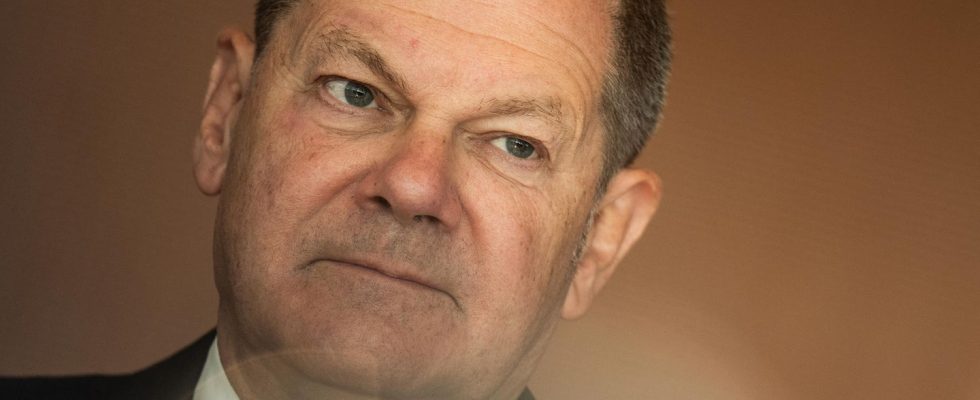Before the federal-state summit
More money, fewer asylum seekers: What the states are demanding from the federal government when it comes to migration
At the federal-state summit on migration, Chancellor Olaf Scholz (SPD) can prepare for demands that are likely to cost the federal government a lot
© Michael Kappeler / DPA
The debate about migration in Germany is becoming increasingly heated. At a federal-state summit, Chancellor Olaf Scholz and the heads of government of the federal states are looking for solutions. The expectations are great.
Before the federal-state summit on Monday, Lower Saxony’s Prime Minister Stephan Weil is calling for a national consensus on migration policy. This would be an important sign for citizens of a shared perception of responsibility, he said SPD politician at the German Press Agency in Hanover. Mecklenburg-Western Pomerania’s Prime Minister Manuela Schwesig (SPD) once again insisted on lump sums that the federal government should pay to the states for the accommodation of asylum seekers.
On Monday, the heads of government of the federal states will discuss numerous topics with Chancellor Olaf Scholz (SPD), including the financing of refugee accommodation. According to the states, the federal government wants to reduce its share from 3.75 billion euros this year to 1.25 billion euros next year. They don’t want to accept that. In a resolution in mid-October, they demanded a flat rate of 1.25 billion euros and at least 10,500 euros per migrant.
Dispute over refugee funding
Schwesig repeated the demand for flat rates for refugees in the “Interview of the Week” on Deutschlandfunk. “10,500 euros flat rate per asylum seeker. That would be a dynamic system. If more come, there is more money, and if there are fewer there is less.”
The President of the German District Association, Reinhard Sager, demanded “the full assumption of the accommodation costs for recognized refugees, which are rising sharply due to the influx from Ukraine.” Sager told “Bild am Sonntag”: “In 2023 it will be about three billion euros, which we are demanding from the federal government.” War refugees from Ukraine do not have to apply for asylum.
Call for a reduction in the number of asylum seekers
Justice Minister Marco Buschmann (FDP) also told “Bild am Sonntag” that the Prime Minister’s Conference must send the signal “that we want to achieve a change in migration together.” Weil also emphasized that the number of people coming to Germany must decrease. “It doesn’t help, we have to reduce the number of people coming to us every week.”
CSU regional group leader Alexander Dobrindt stated as a guideline that the number of people arriving in Germany each year must be reduced to 100,000. “Last year there were 240,000 asylum applications, this year there will be over 300,000, plus a million refugees from Ukraine. A look at the situation in our communities shows that a number of 100,000 is the more likely limit in the future,” he told the “Bild am Sunday”.
Migration 2023
Most refugees come to Germany from these countries
In order to protect municipalities from overload, the Association of Cities believes that asylum procedures must be accelerated. “The federal government must ensure more staff at the Federal Office for Migration and Refugees so that hearing procedures can be carried out promptly and even faster,” said City Council President Markus Lewe of the Funke media group. The states must ensure that the proceedings in the administrative courts are completed more quickly.
Criticism of the tone in the migration debate
The Federal Government’s Commissioner for Integration, Reem Alabali-Radovan, meanwhile complained about the tone in the asylum debate. “A tone that is becoming increasingly sharp and populist, as well as presenting new pseudo-solutions every day, is dividing our society into “The Others” and “We,” the SPD politician told the Editorial Network Germany (RND). It is wrong to use the migration issue as the cause of all the problems in Germany.

